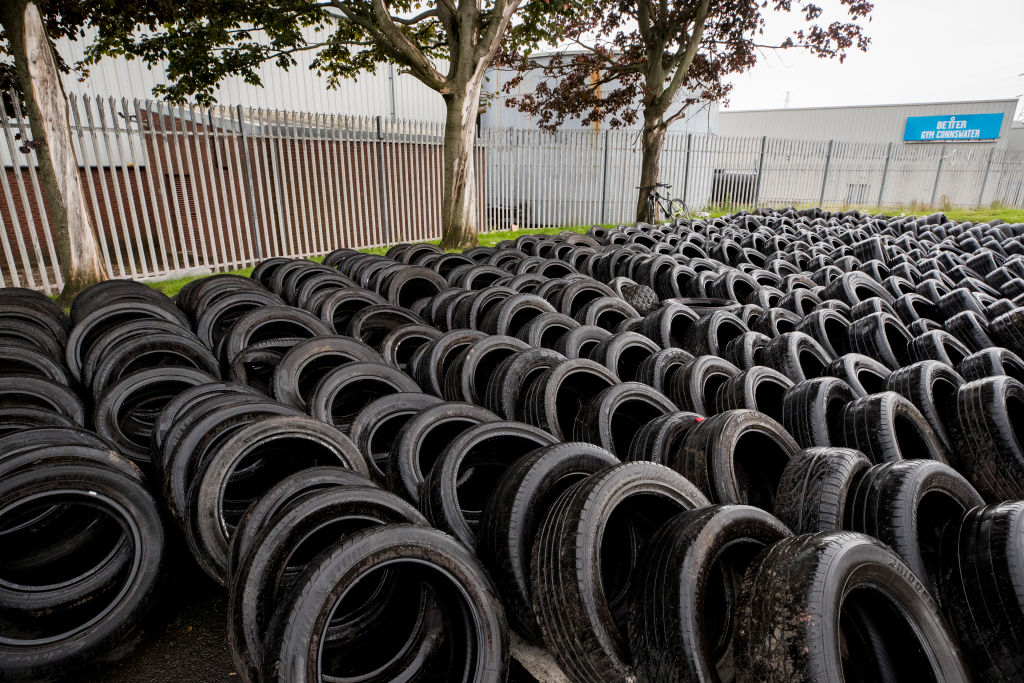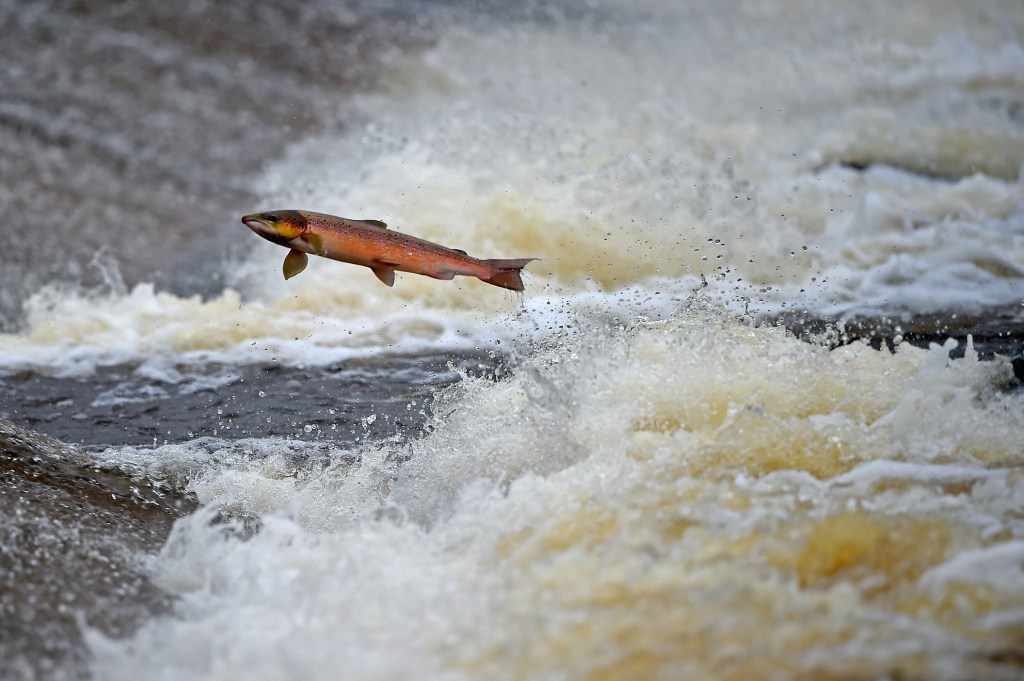
Your Tires Are Killing Salmon
Car lovers are regularly faced with the fact that fossil fuels are bad for the environment. Certain states have implemented emissions regulations to help mitigate this problem, but we just have to deal with it one way or another. Luckily the advent of EVs promises to lessen the impact of gas-burning cars. But, what are we supposed to do now that our tires are also a threat to the earth?
MotorTrend highlighted some reportings found in the Journal Science, conducted by people at the University of Washington that found that the chemical 6PPD, a widely used chemical for tire production, kills salmon. In the Pacific Northwest, coho salmon are dropping like flies due to this chemical. The study found that in some cases, between 40 and 90 percent of Coho salmon die before spawning with similar symptoms.
Even the EVs are ruining the planet if tires are bad
When tires wear down, they shed tiny particles that collect on the roadside and get blown or washed into the ground and eventually into the waterways. The experiment needed to recreate this tire by-product into streams and rivers by steeping some particles from both new and used tires in water with salmon with him. They exposed juvenile coho salmon to the contaminated water, and the results were upsetting. After exposure to the chemical, 98 percent of the fish died within two to six hours. They all showed the same symptoms like the ones in the wild that researchers observed.

So what is it about tires that are killing these fish?
Tires are made up of quite a cocktail of chemicals and compounds to make them perform as they should. The scientists went through a long list of these chemicals to find which were hurting the fish. They came up with nothing until the chemical 6PPD.
MotorTrend reached out to Sarah Amick, the vice president of environment, health safety, and sustainability and senior counsel at the United States Tire Manufacturers Association (USTMA). Amick confirmed that 6PPD is a widely used chemical used to preserve the compounds that help tires comply with the National Highway Traffic Safety Administration’s applicable Federal Motor Vehicle Safety Standards. The researches found and Amick confirmed that 6PPD helps materials resist breaking down from oxygen, ozone, and temperature.

Out in the real world, however, ozone reacts with 6PPD to create a different chemical: 6PPD-quinone. When presented to the salmon’s ecosystem, this byproduct of tire dust resulted in the same symptoms and rapid death. The researchers note that they don’t know how this chemical affects other wildlife. They only studied its effects on salmon for this study.
Did the tire manufacturers know about the side effects of this chemical?
The research shows that it doesn’t appear that this chemical was known to be toxic. At this point, there isn’t any reason to believe the tire makers were willingly poising the streams. However, the World Business Council for Sustainable Development’s Tire Industry Project is conducting its own research to determine what other compounds within tires might have other harmful effects on the environment.
What are we going to do about this?
While the USTMA reviews the study, Dr. Zhenyu Tian, who led the research team from the University of Washington, said when approached by MotorTrend, that they were working on ways to minimize the toxicity of 6PPD with rain gardens and biosoil treatment.
As is the theme of 2020; “We just found out about something terrible. We don’t know what exactly to do about it, but we’re working on it.” – science



